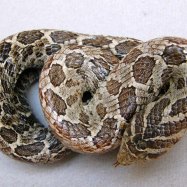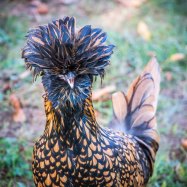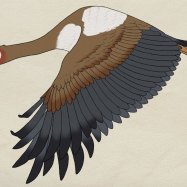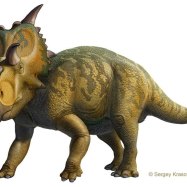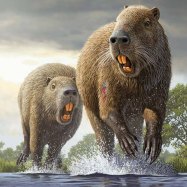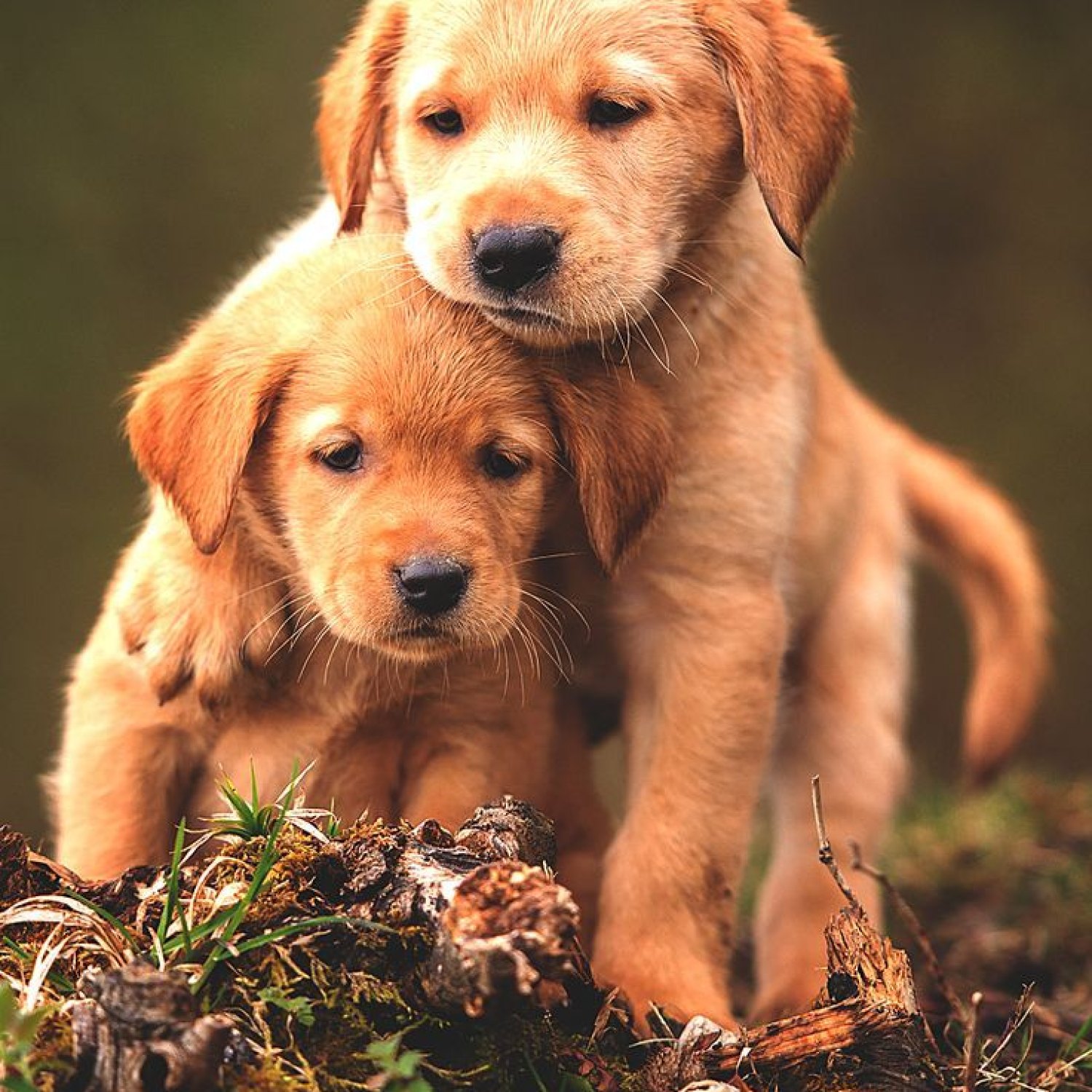
Dog
Varies depending on breed
Take a journey around the world with man's best friend, the Dog. With over 400 breeds varying in size and shape, these loyal companions can be found in every corner of the globe. From the Chihuahua in Mexico to the Golden Retriever in America, the Canidae family continues to capture hearts worldwide. No matter where you go, a furry friend is never too far away.
Animal Details Summary:
Common Name: Dog
Kingdom: Animalia
Habitat: Various habitats including forests, grasslands, deserts, and human settlements
The Fascinating World of Dogs: From Ancient Times to Modern Companions
Dogs, scientifically known as Canis lupus familiaris, are one of the most beloved animals in the world. As widely recognized companions, they are known for their loyalty, affection, and enthusiasm towards their human counterparts. But beyond being just pets, dogs are fascinating creatures that have played an integral role in the history of human civilization. From ancient times to modern-day, they have adapted to various roles and environments, showcasing their incredible intelligence and versatility Dog. Let's take a closer look at the world of dogs, their evolution, and their impact on human society.The Classification of Dogs
Before we dive into the history and various characteristics of dogs, let's understand their classification in the animal kingdom. Dogs belong to the kingdom Animalia, meaning they are multicellular, eukaryotic organisms. They are part of the phylum Chordata, along with other vertebrates such as fish, birds, and mammals. Their class is Mammalia, making them warm-blooded, lactating animals with hair or fur. This classification puts dogs in the company of other mammals, including humans.Evolution and Domestication of Dogs
The history of dogs dates back thousands of years, with evidence suggesting that they were first domesticated around 15,000 years ago. However, the exact origin of domesticated dogs is still uncertain, with various theories proposing different regions, including East Asia, Central Asia, and Europe. But regardless of their origin, the domestication of dogs has had a significant impact on human society Drum Fish.The process of domestication transformed wolves, the ancestors of modern-day dogs, into domesticated companions. As humans started to form settlements and communities, wolves were drawn to the proximity of human settlements and villages, likely for easy access to food scraps. Over time, these wolves evolved through selective breeding, resulting in the domesticated dog. Throughout history, dogs have been bred for various purposes, such as hunting, guarding, and companionship. This selective breeding has led to the diverse range of dog breeds we see today, each with its unique characteristics and traits.
The Physical Characteristics of Dogs
One of the most intriguing aspects of dogs is their physical characteristics, which vary greatly depending on their breed. For example, the body shape, size, and coat color can differ significantly from a small Chihuahua to a large Great Dane. On average, dogs can range from 6 inches to over 3 feet in height and weigh anywhere from 2 pounds to over 200 pounds. Some breeds, such as the Chihuahua, have a lifespan of up to 20 years, while larger breeds, such as the Great Dane, may have a shorter lifespan of around 6 to 8 years.Dogs' Habitat and Adaptability
Dogs are highly adaptable creatures, which has played a significant role in their evolution and domestication. They can thrive in various habitats, including forests, grasslands, deserts, and even in human settlements. As humans migrated to different parts of the world, they took their canine companions with them, leading to the global distribution of dogs. Today, dogs can be found in almost every country, from rural villages to large cities.However, unlike their wild counterparts, domesticated dogs rely heavily on humans for their survival. This dependency on humans is a result of thousands of years of domestication, during which dogs have adapted to living and working alongside humans. Through selective breeding, dogs have developed traits that are beneficial to human needs, such as herding, hunting, and guarding. This close relationship with humans has made dogs one of the most successful domesticated animals in the world.
Dogs as Carnivores
Just like their ancestors, wolves, dogs are carnivorous animals. However, due to their domestication and close relationship with humans, their diet has become more varied than just meat. In today's world, dogs are fed a balanced diet of meat, grains, and vegetables to meet their nutritional needs. This omnivorous diet has contributed to dogs' ability to adapt to different habitats and thrive as domesticated animals.The Impact of Dogs on Human Society
Dogs have been an integral part of human society for thousands of years. In ancient times, they played a crucial role in hunting, providing protection, and helping humans with laborious tasks. As societies progressed, dogs took on different roles, such as herding, guarding, and even serving as military companions. Additionally, throughout history, dogs have also been bred for their physical traits, including their size, coat color, and temperament, resulting in the wide variety of breeds we see today.But perhaps the most notable impact of dogs on human society is their contribution as companion animals. Dogs are known for their unwavering loyalty, unconditional love, and ability to provide emotional support to their owners. They have become an essential part of many families, providing comfort, companionship, and even assisting people with disabilities.
The Role of Dogs in Modern Society
In today's world, dogs continue to play a crucial role in human society. Besides being cherished companions, they are also trained for various purposes, including law enforcement, search and rescue, and therapy work. Dogs are often used in disaster situations to help locate and rescue people, as well as provide emotional support to those who have been affected. In addition, dogs are also trained to assist individuals with disabilities, such as guide dogs for the visually impaired and service dogs for individuals with mobility impairments.Moreover, dogs are increasingly being used in the field of science and research. Due to their high intelligence and ability to learn, dogs are often trained for tasks such as drug and bomb detection, tracking, and even disease detection. They have also played a crucial role in medical research, including finding cures for diseases and understanding human behavior and psychology.
The Controversy Surrounding Dogs
While dogs are revered and loved by many, there is also controversy surrounding their treatment and role in society. One of the most contentious issues is the breeding and selling of designer or purebred dogs. While many argue that selective breeding results in healthier and more predictable traits, others criticize this practice, citing health problems and ethical concerns. Additionally, the use of dogs in various industries, such as entertainment and sports, has also sparked debates on animal rights and welfare.Another controversial topic surrounding dogs is their treatment in different parts of the world. In some countries, dogs are considered a delicacy, and their meat is consumed, leading to animal welfare and ethical concerns. Furthermore, in some places, dogs are used for fighting or as status symbols, leading to abuse and neglect. These issues highlight the need for responsible ownership and proper education on animal welfare.
The Future of Dogs
As we move forward into the future, it's clear that dogs will continue to play a significant role in human society. With advancements in technology and research, we may see more innovative ways in which dogs can assist humans, such as in environmental conservation or medical breakthroughs. Additionally, with the increasing popularity of therapy dogs and emotional support animals, dogs may also play a more significant role in mental health and well-being.Moreover, as the world becomes more aware of animal welfare and responsible ownership, we may see better regulations and laws to protect dogs from abuse and neglect. The future may also see a shift towards more ethical breeding practices, focusing on the health and well-being of dogs rather than their physical appearance.
In Conclusion
From their ancient origins to their modern-day roles, dogs have come a long way alongside humans. They are more than just pets; they are loyal companions, reliable workers, and loving friends. Dogs are truly remarkable creatures, with exceptional adaptability, intelligence, and companionship, making them an integral part of human society. As we continue to evolve and progress, let us not forget the invaluable contributions of dogs and the special bond we share with them.

Dog
Animal Details Dog - Scientific Name: Canis lupus familiaris
- Category: Animals D
- Scientific Name: Canis lupus familiaris
- Common Name: Dog
- Kingdom: Animalia
- Phylum: Chordata
- Class: Mammalia
- Order: Carnivora
- Family: Canidae
- Habitat: Various habitats including forests, grasslands, deserts, and human settlements
- Feeding Method: Carnivorous
- Geographical Distribution: Global
- Country of Origin: Uncertain (Domesticated in various regions)
- Location: Worldwide
- Animal Coloration: Various colors and patterns
- Body Shape: Varies depending on breed
- Length: Varies depending on breed

Dog
- Adult Size: Varies depending on breed
- Average Lifespan: 10-13 years (varies depending on breed and size)
- Reproduction: Sexual
- Reproductive Behavior: Varies depending on breed and individual
- Sound or Call: Barking, howling, whimpering, growling, etc.
- Migration Pattern: Non-migratory
- Social Groups: Varies depending on breed and individual
- Behavior: Highly social, trainable, loyal, playful, protective
- Threats: Various diseases, accidents, maltreatment, overbreeding
- Conservation Status: Not globally threatened
- Impact on Ecosystem: Varies depending on breed and individual
- Human Use: Companionship, working dogs, therapy dogs, guide dogs, assistance dogs, search and rescue dogs, herding dogs, hunting dogs, etc.
- Distinctive Features: Sharp teeth, keen sense of smell, erect ears, wagging tail
- Interesting Facts: Dogs are descendants of wolves and were domesticated around 15,000 years ago. They have a unique ability to understand human emotions and can be trained for various tasks. There are hundreds of dog breeds, each with different characteristics and behaviors.
- Predator: Varies depending on size and location

Canis lupus familiaris
Dogs: More than Just Man's Best Friend
When we think of dogs, the first thing that may come to mind is their loyalty and their role as our faithful companions. But there is so much more to these furry creatures than just being a pet. Dogs have a long and fascinating history, and their unique features and behaviors make them an integral part of our lives.From their varying sizes and lifespans to their reproductive behaviors and impact on ecosystems, let us delve deeper into the world of dogs and discover what truly makes them special PeaceOfAnimals.Com.
The Basics: Size, Lifespan, and Reproduction
The first thing that may strike us about dogs is their vast diversity in terms of size. From tiny Chihuahuas to giant Great Danes, there are hundreds of dog breeds, each with its unique size and characteristics. And this is no surprise, as dogs have been bred selectively for thousands of years to serve different purposes.On average, the adult size of a dog varies depending on its breed. Smaller breeds can weigh as little as 2-5 pounds, while larger breeds can weigh up to 150 pounds. The size also plays a role in their lifespan, with larger breeds having a shorter lifespan of 8-10 years, while smaller breeds can live up to 15 years or more.
When it comes to reproduction, dogs are sexual beings like most mammals. They go through a heat cycle once or twice a year, during which they can mate and produce offspring. However, their reproductive behavior can vary depending on the breed and individual dog Danios. Some dogs may display aggression during mating, while others may become more affectionate.
Sounds and Social Groups: Communication and Companionship
One of the most prominent features of dogs is their ability to communicate through sound. They can produce a wide range of sounds, from barking and howling to whimpering and growling. These vocalizations serve different purposes, such as alerting their owners of danger or communicating with other dogs.Dogs are highly social animals, and their social groups can vary depending on their breed and individual personalities. Some dogs may live in a pack, while others may prefer solitary living. However, most dogs thrive in human social groups and are known for their strong bonds with their owners.
Behavior: More than Just a Pet
Dogs have been mankind's companions for thousands of years, and their behavior is what makes them stand out. They are highly trainable, with an unmatched ability to understand human emotions. This is why they have been trained to perform various tasks such as herding, hunting, and even assisting people with disabilities.Their loyalty and playfulness make them the perfect working and therapy dogs, providing comfort and assistance to those in need. And let's not forget their natural instinct to protect their owners and their territory, showcasing their protective behavior.
However, dogs can also exhibit destructive and aggressive behavior if not properly trained and socialized. Overbreeding, maltreatment, and lack of proper care can also contribute to undesirable behaviors in dogs.
Threats and Conservation: A Man-Made Problem
Despite being highly valued and cherished by humans, dogs are prone to numerous threats. Various diseases, accidents, maltreatment, and overbreeding are some of the leading causes of death and suffering among dogs. Sadly, these threats are mostly man-made, making it our responsibility to properly care for and protect these loving creatures.But on a global scale, dogs are not considered as a threatened species. They have adapted well to human environments and can thrive in different climates and habitats. However, overbreeding and neglect of certain breeds can lead to negative impacts on their population and genetic health.
The Impact of Dogs on Ecosystems and Human Life
Dogs can have a significant impact on ecosystems, both positive and negative. In their role as working dogs, they can help maintain balance in ecosystems by controlling pests and predators. They are also used in search and rescue missions, aiding in disaster relief efforts and saving lives.On the other hand, overbreeding of certain dog breeds can lead to genetic health problems and an increase in strays and abandoned dogs. This can have a detrimental impact on ecosystems, as these dogs can become a threat to native species.
When it comes to human life, dogs have an essential and multifaceted role. They have been man's best friend since their domestication around 15,000 years ago. Today, they continue to provide companionship, bringing joy and happiness to millions of households around the world.
But their role does not stop there. Dogs also serve as working dogs in various industries, such as herding, hunting, and providing assistance to people with disabilities. They are also trained for search and rescue missions, helping to save lives during natural disasters.
Distinctive Features and Interesting Facts
Dogs possess several distinctive features that make them stand out among other animals. Their sharp teeth and keen sense of smell make them excellent hunters, while their erect ears and wagging tails are indicators of their mood and emotion.But perhaps the most interesting fact about dogs is their domestication. They are descendants of wolves and were domesticated by humans for their hunting and guarding abilities. Over centuries of selective breeding, dogs have evolved into the different breeds we see today, each with their unique characteristics and behaviors.
Predator or Companion: The Role of Humans
Dogs can be both predators and companions, depending on their size and location. Smaller breeds may be preyed upon by larger carnivorous animals, while larger breeds can serve as protectors against potential threats.But ultimately, it is us, humans, who determine the role of dogs in our lives. From breeding and training them for specific tasks to providing them with the love and care they deserve, we have a responsibility towards these loving creatures.
The Verdict: Dogs, A Unique and Integral Part of Our Lives
Dogs are more than just pets; they are a unique and integral part of our lives. Their various sizes, behaviors, and capabilities make them diverse and adaptable beings, capable of fulfilling different roles in our society.From their role in ecosystems to their impact on human life, dogs have a significant presence in the world. It is our responsibility to properly care for and protect these creatures, ensuring their well-being and the sustainability of their population.
So the next time you see a dog, remember, they are more than just man's best friend; they are a crucial part of our world.

The Fascinating World of Dogs: From Ancient Times to Modern Companions
Disclaimer: The content provided is for informational purposes only. We cannot guarantee the accuracy of the information on this page 100%. All information provided here may change without prior notice.


